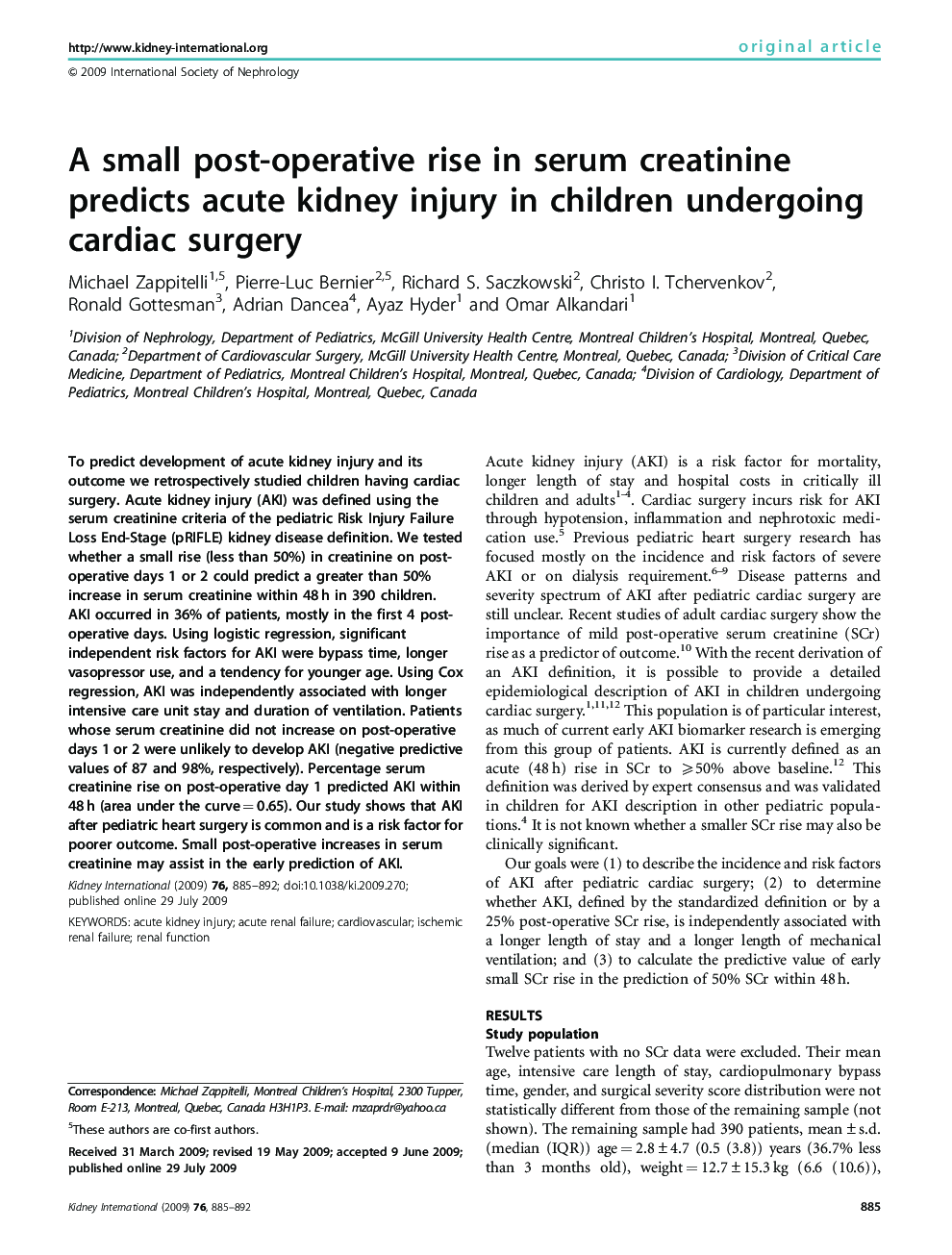| Article ID | Journal | Published Year | Pages | File Type |
|---|---|---|---|---|
| 3884204 | Kidney International | 2009 | 8 Pages |
To predict development of acute kidney injury and its outcome we retrospectively studied children having cardiac surgery. Acute kidney injury (AKI) was defined using the serum creatinine criteria of the pediatric Risk Injury Failure Loss End-Stage (pRIFLE) kidney disease definition. We tested whether a small rise (less than 50%) in creatinine on post-operative days 1 or 2 could predict a greater than 50% increase in serum creatinine within 48 h in 390 children. AKI occurred in 36% of patients, mostly in the first 4 post-operative days. Using logistic regression, significant independent risk factors for AKI were bypass time, longer vasopressor use, and a tendency for younger age. Using Cox regression, AKI was independently associated with longer intensive care unit stay and duration of ventilation. Patients whose serum creatinine did not increase on post-operative days 1 or 2 were unlikely to develop AKI (negative predictive values of 87 and 98%, respectively). Percentage serum creatinine rise on post-operative day 1 predicted AKI within 48 h (area under the curve=0.65). Our study shows that AKI after pediatric heart surgery is common and is a risk factor for poorer outcome. Small post-operative increases in serum creatinine may assist in the early prediction of AKI.
